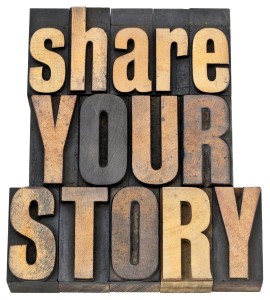Tips for Story Telling
- Start at a point in time.
- The most memorable stories in any culture start with some variation of “once upon a time,” the same way a fairy tale begins.
- Describe that point in time.
- Then let it roll.
- Don’t explain the story (wrong way). Re-create it the way it happened (right way).
- Use dialogue.
- Make your audience see what you saw, hear what you heard, and feel what you felt.
- Make your point, and tie it back to your overall message.
Rerun from 09/30/2013
THE ENTIRE WORLD LOVES A STORY
- An event you lived through or studied about that moved you. The more impact it had on you, the more impact it will have on your audience.
- If your story involves kids, someone else’s or yours, you can’t miss. Why? Kids are part of everyone’s experience. Kids are cute.
- The story can’t be merely a remembered event or a monologue about travel. It must have drama, tension and a “moment of truth” where someone’s decision causes success from failure. For example, did a stranger’s favor help you get to a crucial appointment on time?
Tips for Being a Masterful Presenter
Tips for Being a Masterful Presenter

1. An effective presentation builds a relationship with people who are giving you the gift of their time and attention. You may be able to require their time, but you have to earn their attention.
2. To paraphrase Lani Arrendondo, to relate like a Pro or master of communication,
a. Relate what is relevant and important to the audience and to your topic
b. Satisfy these four needs of your listeners:
i. Expectation: to help them know what to expect in your presentation, state your objective and give them a preview of what you are going to say
ii. Recognition: let them know YOU know who they are
a. Know who is in your audience
b. Address your message to them.
c. Affirm and praise them for their good qualities
d. Vary the pace of your presentation so that you keep their attention
iii. Participation: get the audience involved
a. Ask questions
b. Use recalls or remind them of something in their life or something you have already said
c. Relate scenarios or examples from their lives
iv. Application: tell your audience how what you say can benefit them
a. State the value of your message to the audience. Value can be growing in knowledge and understanding, or making money, or getting a competitive edge, or…
Rerun from 9/16/2013








